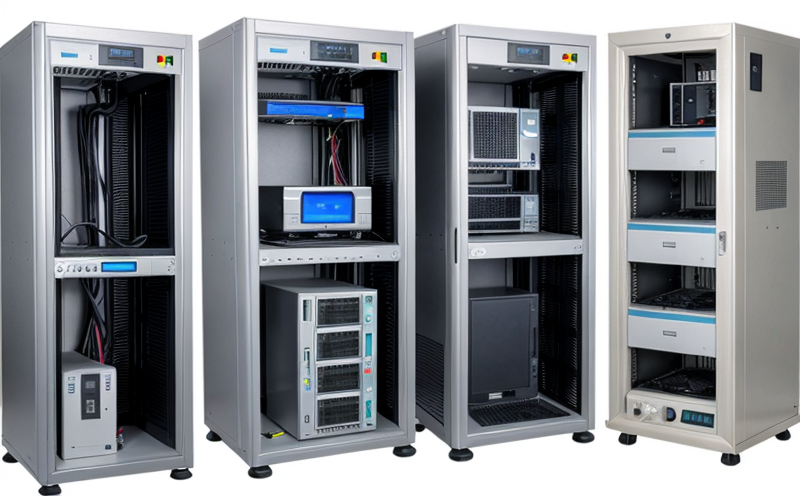IEEE 1680 Environmental Assessment Testing for ICT Products
The IEEE Standard P1680 (now known as IEEE 1680) provides a framework for assessing the environmental impact of information and communication technology (ICT) products. This standard is particularly relevant for manufacturers, quality managers, and compliance officers involved in the design, production, and deployment of ICT devices such as servers, routers, switches, and other network equipment.
The IEEE 1680 standard focuses on lifecycle assessment methodologies to evaluate the environmental performance of ICT products throughout their life cycle. This includes energy consumption during manufacturing, transportation, use, and disposal phases. By adhering to this standard, organizations can ensure that their products meet stringent sustainability requirements while also complying with local and international regulations.
Our service offers comprehensive IEEE 1680 environmental assessment testing tailored specifically for ICT products. Our team of experts uses advanced tools and methodologies to conduct detailed lifecycle assessments that cover all critical stages of the product's journey from raw material extraction through end-of-life disposal. This ensures not only regulatory compliance but also enhances brand reputation by demonstrating a commitment to sustainable practices.
Some key aspects covered in our testing include:
- Eco-efficiency analysis
- Material flow analysis
- Energy consumption metrics during manufacturing and usage
- Greenhouse gas emissions calculations
- Waste generation estimates at various stages of the lifecycle
- End-of-life recycling scenarios evaluation
We employ cutting-edge analytical techniques such as life cycle assessment (LCA), material flow analysis (MFA), and energy balance studies to provide robust data supporting your product’s environmental footprint. Our reports are designed to meet both internal decision-making needs and external reporting requirements for stakeholders.
| Stage of Lifecycle | Evaluation Metrics |
|---|---|
| Raw Material Extraction | Carbon intensity, water usage |
| Manufacturing Process | Energy consumption per unit, waste generation |
| Use Phase | Electricity demand during operation, heat dissipation analysis |
| End-of-Life Scenario | Recyclability assessment, disassembly complexity |
| Product Stage | Environmental Impact Metrics |
|---|---|
| Manufacturing | Total energy consumption, CO2 emissions |
| Use | Daily average power draw, annual electricity cost |
| End-of-Life | Weight of recyclable materials, landfill contribution percentage |
Our comprehensive approach ensures that you have a clear understanding of the environmental impact associated with your ICT products. With this information at hand, you can make informed decisions about how to reduce your product's carbon footprint and contribute positively towards sustainable development goals.
We pride ourselves on delivering accurate, reliable results that exceed industry standards. Our clients benefit from actionable insights which help them stay ahead of emerging trends in green technology while maintaining operational efficiency.
Industry Applications
The IEEE 1680 standard finds application across various sectors where ICT products play a crucial role, including telecommunications, data centers, and consumer electronics. Here are some specific areas:
- Data Centers: Ensuring efficient cooling systems reduce energy consumption during the operation phase.
- Telecommunications Networks: Evaluating the environmental impact of base stations and network infrastructure.
- Consumer Electronics: Assessing the sustainability of smartphones, tablets, and other portable devices.
| Sector | Application | Evaluation Focus |
|---|---|---|
| Data Centers | Cooling Efficiency | Energy consumption during operation, heat dissipation analysis |
| Telecommunications Networks | Base Station Design | Sustainability of materials, energy efficiency metrics |
| Consumer Electronics | Smartphone Manufacturing | Eco-efficiency analysis, material flow assessment |
Our team has extensive experience working with clients from these sectors to tailor our services to their unique needs. Whether you are a manufacturer looking to improve the sustainability of your products or an operator seeking to minimize environmental impacts across your entire network, we offer customized solutions that drive innovation and sustainability.
Eurolab Advantages
Choosing Eurolab for IEEE 1680 environmental assessment testing offers several advantages:
- Comprehensive Expertise: Our team comprises highly qualified professionals with deep knowledge of ICT product lifecycle assessments.
- Precision and Accuracy: Utilizing state-of-the-art equipment and methodologies, we ensure precise measurements and accurate results.
- Regulatory Compliance: Stay ahead of regulatory changes by ensuring your products meet current and future standards.
- Actionable Insights: Receive detailed reports that provide clear recommendations for enhancing sustainability efforts.
- Proven Track Record: Eurolab has successfully completed numerous projects across multiple industries, demonstrating our commitment to excellence.
We are committed to helping you achieve your environmental goals while maintaining operational efficiency. Contact us today to learn more about how we can assist with IEEE 1680 testing for ICT products.
International Acceptance and Recognition
The IEEE 1680 standard enjoys widespread acceptance among governments, international organizations, and industry bodies worldwide. It aligns closely with global initiatives aimed at reducing the environmental impact of ICT products:
- ISO/IEC 34-79: Environmental Management Systems
- United Nations Environment Programme (UNEP): Green ICT Initiative
- European Commission: Digital Single Market Strategy
By adopting IEEE 1680, organizations demonstrate their alignment with these initiatives and contribute to the broader goal of sustainable development. Our services not only meet but exceed international standards, ensuring that your products are recognized globally for their environmental performance.





